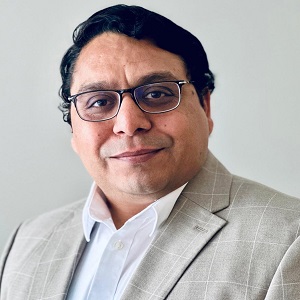Navigating the Future of Data Science
 Dr Bhuvanesh Singh, Data Scientist, Ford Motor Company in a recent interaction with Higher Education Review, shared his views on the future of data science in India, the trends or developments shaping its evolution in the coming years, the future of data science on the global stage and more.
Dr Bhuvanesh Singh, Data Scientist, Ford Motor Company in a recent interaction with Higher Education Review, shared his views on the future of data science in India, the trends or developments shaping its evolution in the coming years, the future of data science on the global stage and more.
He is a data science enthusiast with an MS in Data Science from the USA and a PhD in Machine Learning. Currently working at Ford Motor Company, he leverages data to optimize vehicle performance and enhance fleet management dashboards. His expertise spans automotive, agriculture, and FMCG sectors, with contributions in blockchain, food technology, and misinformation detection, driving innovation and sustainability across industries.
Having worked on a state government-funded project on fake news detection, could you tell us more about that experience and the significance of that work?
Absolutely, the project was part of a state government initiative in India aimed at combating the spread of fake news on social media platforms. My role involved developing a multi-modal framework that combined natural language processing (NLP) and computer vision techniques to detect manipulated images and misleading information. The project was quite innovative, and we even filed a patent for our approach, which used a custom convolutional neural network (CNN) with a self-attention module to achieve state-of-the-art accuracy. This work is crucial because fake news has the potential to mislead millions of people, creating social unrest and spreading misinformation at an alarming rate.
What do you think is the impact of fake news on social media platforms today?
The impact of fake news on social media is profound and far-reaching. It can influence public opinion, sway elections, incite violence, and generally sow discord in society. The algorithms used by social media platforms are designed to prioritize engagement, which often means that sensationalist content—whether true or not—gets amplified. This makes it incredibly challenging to control the spread of fake news. The consequences are not just misinformation but a fundamental erosion of trust in the information we consume.
Why do you think social media platforms are not solving this problem efficiently?
There are a few reasons for this. First, the sheer volume of content that gets posted every second makes it difficult to monitor everything in real-time. Second, distinguishing between true and false information isn’t always straightforward, especially when fake news is designed to look credible. There’s also the issue of balancing free speech with content moderation, which is a contentious and complicated topic. Lastly, there’s the economic model of these platforms, which thrives on engagement. Correcting misinformation doesn’t necessarily generate the same level of user engagement as spreading sensationalist content does, which can create a conflict of interest.
How do you feel your work on fake news detection can contribute to solving this problem?
I believe my work can make a significant contribution by providing more effective tools for identifying and mitigating the spread of fake news. The multi-modal framework we developed is particularly powerful because it combines both textual and visual analysis, making it harder for fake content to slip through. Additionally, we’re in the process of developing a mobile app and a browser extension that will incorporate this patented algorithm. These tools will allow users to instantly verify the authenticity of images they come across online, empowering them to make informed decisions about the content they consume.
Looking ahead, what do you see as the future of data science on the global stage?
The future of data science globally is incredibly promising. We’re seeing data science permeate every industry, from healthcare to finance to automotive, and the possibilities are endless. As technology advances, particularly with AI and machine learning, data science will become even more integral to decision-making processes. We’ll likely see more automation, where data-driven models help businesses operate more efficiently and predict outcomes with greater accuracy. On a societal level, data science will continue to play a crucial role in addressing global challenges like climate change, public health, and economic inequality.
How do you envision the future of data science in India, and what trends or developments do you see shaping its evolution in the coming years?
India has a unique position in the data science landscape. With a large pool of talent, a growing tech industry, and an increasing focus on digital transformation, the potential is immense. I believe we will see India becoming a global hub for data science innovation, particularly in sectors like healthcare, agriculture, and finance. There is also a growing awareness of the importance of data ethics and privacy, which will shape how data science is practiced in the country. The government’s push for digital initiatives will further accelerate the adoption of data-driven practices across various industries.
What advice would you give to someone just starting their career in data science?
My advice would be to stay curious and never stop learning. Data science is a rapidly evolving field, and what is cutting-edge today might be outdated tomorrow. Focus on building a strong foundation in the basics — statistics, programming, and domain knowledge because these are the skills that will help you adapt to new tools and technologies as they emerge. Also, do not be afraid to tackle real-world problems, even if they seem daunting at first. The best way to learn is by doing, and the more experience you gain, the more valuable you become. Finally, always keep the impact of your work in mind. Data science is a powerful tool, but it is most effective when used to create positive change.

.jpg)